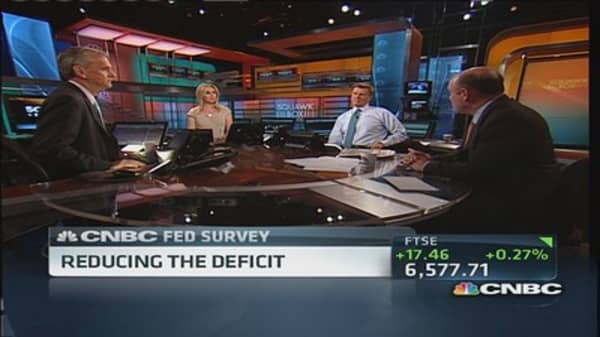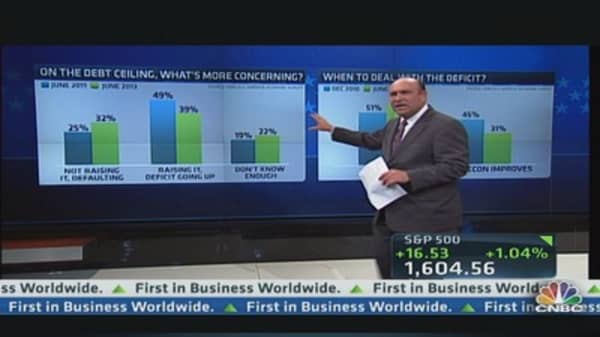But it could also be because of the current impact of deficit reduction on growth. Most economists estimate that the sequester and the tax hikes at the beginning of the year will shave between 1 percent and 1.5 percent off of GDP.
Meanwhile, economists increasingly look at the growth results in Europe, which emphasized government austerity over stimulus, compared to the U.S. and believe austerity may not be the best prescription for a weak economy, even if the economy carries high debt levels.
Several economic research papers, most importantly one from the IMF's chief economist, suggested the fund underestimated the impact of austerity it recommended to European countries.
Meanwhile, Wall Street is not gearing up for a serious debt ceiling debate in the fall.
Respondents put the possibility that Congress will fail to raise the debt ceiling and the U.S. will default on its payments at just over 5 percent. About a third of respondents see the coming debt ceiling debate as less contentious than the last one, 19 percent say it will more contentious and 44 percent say it will be about the same.












